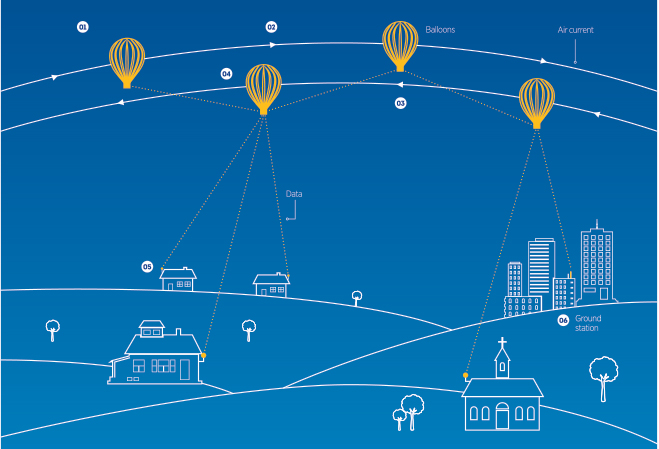Introduction
As a fastest growing of IT industry and IT education, Sri
Lanka has considerable internet accessibility in day to day business needs and
social requirements. Recently, people who tired with low quality internet
accessibility due to distance and interruption has heard ever blessing headline
from Google.
“Sri Lanka is the first country in the world to have
Internet access covering the whole country”- Mike Cassidy, Google Vice
President and Project Leader on GoogleX Project Loon.
This is not the first time Sri Lanka is experience a new
technology as the first South Asian country. It is also the first South Asian country,
was imported first cellular phone in 1989, the first 3G facilitated country in
2004 and the first 4G facilitated country in 2013.
The Technology of Loon
Project Loon is a research and development project being developed by Google with the mission of providing Internet access to rural and remote areas. A network of balloons is travelling on the edge of space to provide internet access all over the country.
Loon Importance as Sri Lankans
People get internet facilitated by telecom operators and
mobile operated companies. As the nature of geography and climate in Sri Lanka,
they would not provide to the most remote areas in the country due to
commercial non-feasibility. Mobile operators also have least consideration of
uninterruptible service in outstations. They have much priority on high quality
service on business centralized areas in capital Colombo, western province. Therefore,
almost 6 million internet users and 2.8 millions of mobile users are facing
internet access issues with low satisfaction. Loon will help fill in coverage
gaps and bring people back online.
Current Status of Sri Lanka’s Google Loon
Sri Lanka’s government and Google signed an agreement to
cover the Island with 3G internet under ‘Google Loon project’ on July 28, 2015.
The project is handled by the Managing Director of the Information and
Communication Technology Agency (ICTA), Muhunthan Canagey.
The agreement is not for testing but for live commercial
deployment. Once Google is done with the successful rolling out of the 13
balloons are completed by March 2016.
Those are expected to provide connectivity across the entire
country will trigger a drastic reduction in both data and voice call charges
whilst Sri Lanka will benefit from a doubling of broadband speeds, where a
minimum download speed of 10 Megabytes per second could be expected.
There are wake of some rumors that Sri Lanka will benefit
from free wi-fi due to section of government representatives. However, the
provision of wi-fi internet services through Google’s Project Loon is not going
to be afforded to consumers ‘free of charge’.

No comments:
Post a Comment